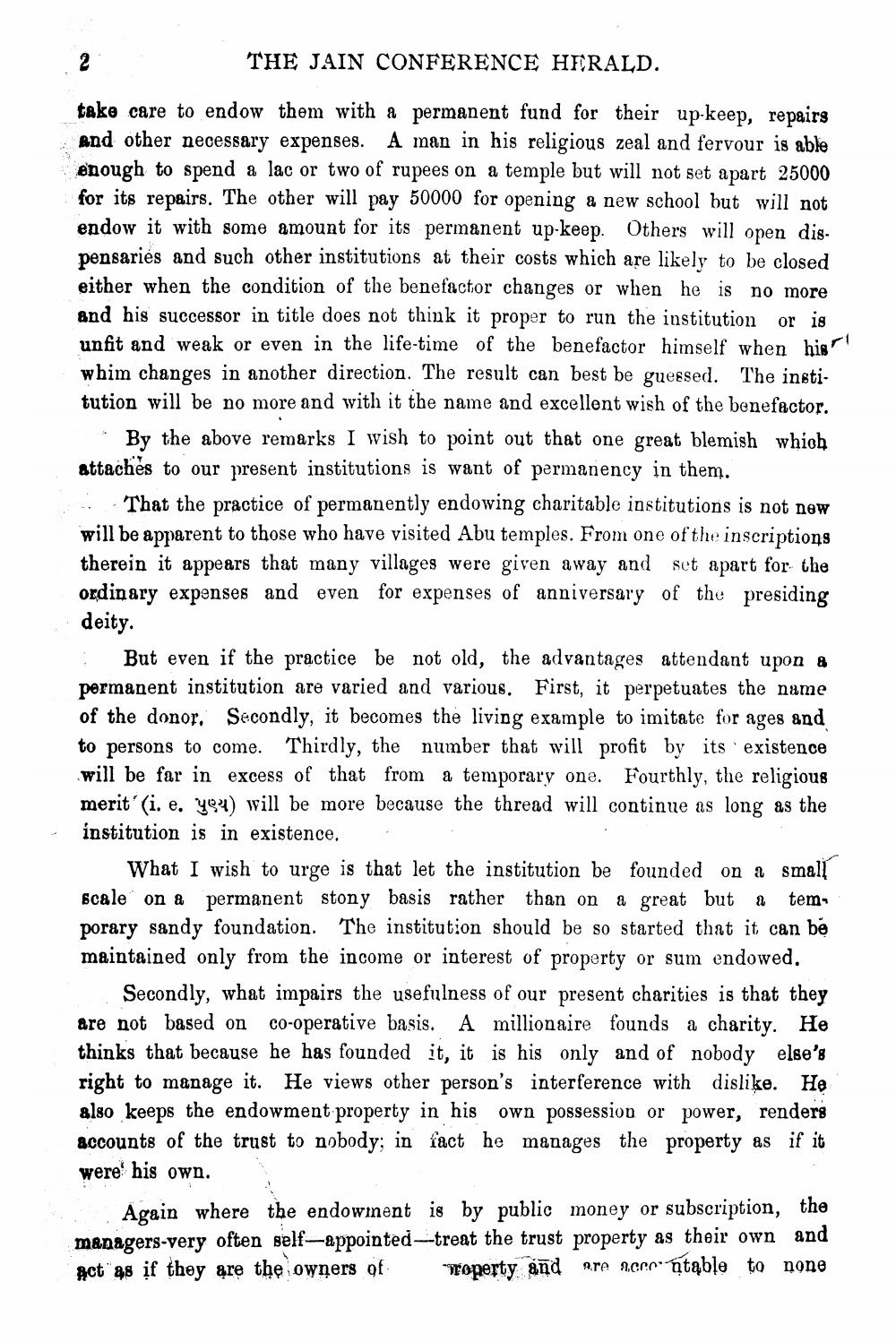Book Title: Jain Shwetambar Conference Herald 1907 Book 03 Author(s): Gulabchand Dhadda Publisher: Jain Shwetambar Conference View full book textPage 8
________________ THE JAIN CONFERENCE HERALD. take care to endow them with a permanent fund for their up-keep, repairs And other necessary expenses. A man in his religious zeal and fervour is able enough to spend a lac or two of rupees on a temple but will not set apart 25000 for its repairs. The other will pay 50000 for opening a new school but will not endow it with some amount for its permanent up-keep. Others will open dispensaries and such other institutions at their costs which are likely to be closed either when the condition of the benefactor changes or when he is no more and his successor in title does not think it proper to run the institution or is unfit and weak or even in the life-time of the benefactor himself when his whim changes in another direction. The result can best be guessed. The insti. tution will be no more and with it the name and excellent wish of the benefactor. he above remarks I wish to point out that one great blemish which attaches to our present institutions is want of permanency in them. .. That the practice of permanently endowing charitable institutions is not new will be apparent to those who have visited Abu temples. From one of the inscriptions therein it appears that many villages were given away and set apart for the ordinary expenses and even for expenses of anniversary of the presiding deity. But even if the practice be not old, the advantages attendant upon a permanent institution are varied and various. First, it perpetuates the name of the donor. Secondly, it becomes the living example to imitate for ages and to persons to come. Thirdly, the number that will profit by its existence will be far in excess of that from a temporary one. Fourthly, the religious merit' (i. e. You will be more because the thread will continue as long as the institution is in existence. What I wish to urge is that let the institution be founded on a small scale on a permanent stony basis rather than on a great but & tem porary sandy foundation. The institution should be so started that it can be maintained only from the income or interest of property or sum endowed. Secondly, what impairs the usefulness of our present charities is that they are not based on co-operative basis. A millionaire founds a charity. He thinks that because he has founded it, it is his only and of nobody else's right to manage it. He views other person's interference with dislike. He also keeps the endowment property in his own possession or power, renders accounts of the trust to nobody; in fact he manages the property as if it were' his own. Again where the endowment is by public money or subscription, the managers-very often self-appointed--treat the trust property as their own and Act as if they are the owners of property and are acentąbļe to nonePage Navigation
1 ... 6 7 8 9 10 11 12 13 14 15 16 17 18 19 20 21 22 23 24 25 26 27 28 29 30 31 32 33 34 35 36 37 38 39 40 41 42 43 44 45 46 47 48 49 50 51 52 53 54 55 56 57 58 59 60 61 62 63 64 65 66 67 68 69 70 71 72 73 74 75 76 77 78 79 80 81 82 ... 428
